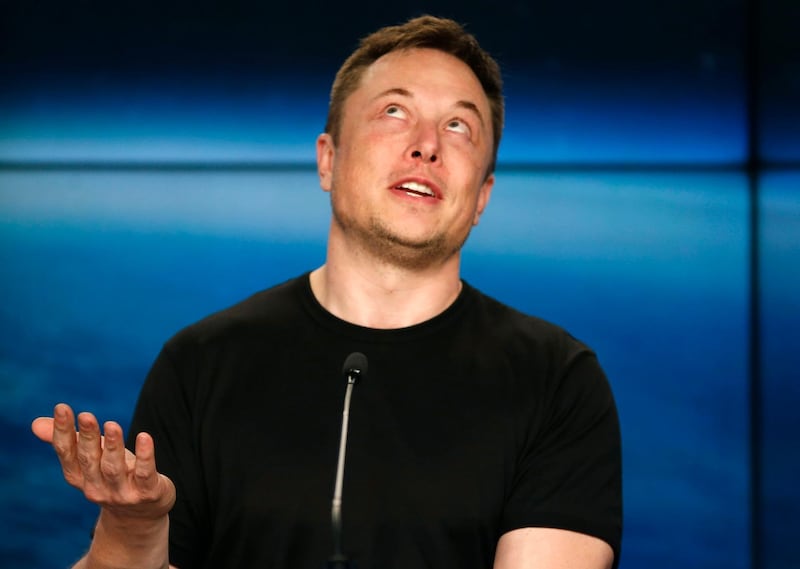If a billionaire can dream so can a bull.
Ross Gerber, the chief executive of fund manager Gerber Kawasaki and one of the most outspoken bullish investors in Tesla said there’s “no doubt” that the electric-car maker needs a skilled operator to swoop in and help the under-pressure chief and founder Elon Musk.
When asked who he’d want, Mr Gerber responded with a peach of an idea: Apple CEO Tim Cook.
“That logistical expertise is exactly what he did for Steve Jobs,” Mr Gerber said of Mr Cook, who was chief operating officer and interim CEO of Apple before succeeding the late co-founder when he died in 2011. “It’s like a perfect match. It’s like a match in heaven. I dream of this day, which may never happen, but you know ... it’s a dream,” he told Bloomberg.
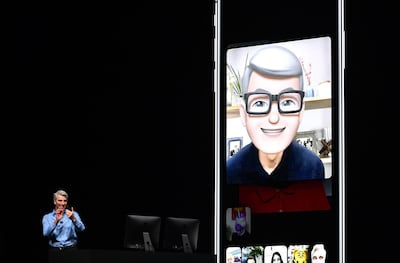
It was reported on Friday that efforts were underway at Tesla to find a No 2 executive to take pressure off Mr Musk, 47, amid the CEO's revelation of his use of a prescription drug to sleep and of the toll that leading Tesla has taken on his personal life.
“Sometimes even very smart people don’t realise how big a hole they’re in and how much help they really need,” Mr Gerber said. “I’m kind of hoping all this is that wake-up call for the board of directors and Elon on building the depth in management that Tesla clearly needs if it’s going to be a $300 billion, $400bn, $500bn company one day.”
The Tesla chief's workload drew criticism from other tech heavyweights.
Last week, Arianna Huffington a senior member of Uber's board and who has written a best-selling book on sleep, said Mr Musk’s lack of it is impairing his performance. “The science is clear,” she wrote in an open letter after he said he works 120 hours a week. Sleeping more and working less clearly doesn’t sound like a good idea to Mr Musk. “You think this is an option,” he tweeted in response to Ms Huffington, at 2.30am on Sunday, while driving home from the Tesla HQ in California. “It is not.”
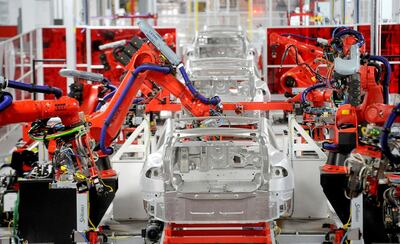
But for investors, a change in routine would probably be better sooner than later.
While Tesla staved off what was poised to be its longest losing streak in more than a month this week there is a growing chorus of disbelievers.
JP Morgan scrapped any modelling in its price target for the possibility that Mr Musk will buy out some investors at $420 a share. JP Morgan analyst Ryan Brinkman, who rates Tesla the equivalent of a sell, said such a deal is “potentially far from even being formally proposed.”
The bearish analysis followed a report Sunday that Saudi Arabia’s sovereign wealth fund - the very investor Mr Musk has described as a linchpin of his plan to take Tesla private - was considering buying a stake in another US electric-car company. The kingdom's Public Investment Fund, which recently purchased almost 5 per cent of Tesla, is in talks for a separate $1 billion investment in Lucid Motors that would give the fund control of that fledgling automaker, Reuters reported.
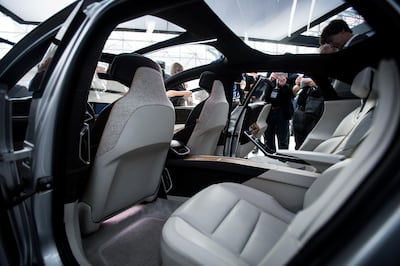
Tesla shares have tumbled from a high of $379 on August 8 to $305 on August 17 before closing up at $308 on Monday.
And while there are plenty of opinions on whether Tesla should or, even can, go private, the world’s biggest sovereign wealth fund isn’t chiming in.
“We don’t have a view on that,” Trond Grande, the deputy chief executive of Norway's $1 trillion fund, which owned 0.48 per cent of Tesla at the end of 2017, said on Tuesday. That stake is worth about worth about $253 million as of the start of this year and Norway is Tesla's third-biggest market.
Mr Grande then added: “We want to be invested in companies that make money.
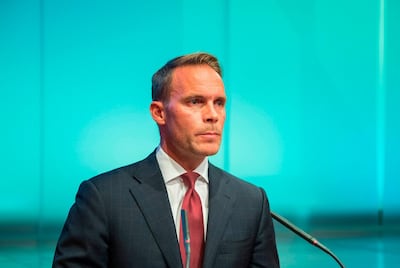
“We’ve said several times what we view as good corporate governance, in terms of role distribution between CEO and chairman, the possibility to vote at general assemblies, that type of thing,” he said. “Some companies are in an early development phase and won’t have matured as much on all these questions.”
Regarding the fund's stance on Tesla should Musk defy naysayers and actually take it private, he said: "As a main rule, we will exit the investments as and when, or soon after, it has been taken off an exchange," he told Reuters.
Investors have been rattled since Mr Musk said no one reviewed his tweet about taking the company private before he posted it. His description of using prescription drug Ambien to sleep and of the toll that leading Tesla has taken on his personal life also raised questions about the well-being of the larger-than-life chief. In addition, the US Securities and Exchange Commission has opened an inquiry related to Mr Musk's tweets, according to sources, while there are also ongoing individual lawsuits against him and the firm alleging securities fraud.
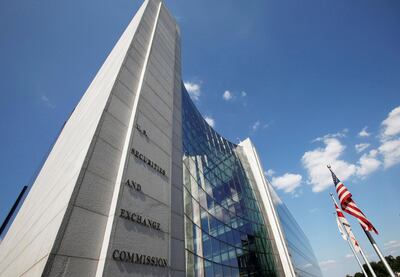
Mr Brinkman, who had hiked his price target on Tesla to $308 after Mr Musk’s initial take-private tweet on August 7, dropped it back to the earlier level of $195. He cited the CEO’s August 13 blog post in which he said the PIF had asked for more information about how the transaction could be pulled off.
“We now believe that such a process appears much less developed than we had earlier presumed,” Mr Brinkman wrote in a note to clients. Taking Tesla private may be “more along the lines of high level intention” than a firm plan, the analyst said, so formally incorporating it into valuation analysis “seems premature at this time”.
Among the many with doubts about Mr Musk’s ability to pull off the privatisation is Vertical Research Group’s Gordon Johnson, a long-time critic of the company. He said the probability of Tesla being taken private was less than 10 per cent, and called the process a “waste of time”.
“A fully debt-funded deal, in our view, is likely nearly impossible to garner interest in at present," Mr Johnson wrote in a note.
"In fact, based on our checks, the bond desk of a prominent investment bank that has helped Tesla get funding in the past has said adding materially more debt to Tesla’s balance sheet would be ‘tough to pull off’”.
Perhaps Mr Musk should sleep on it awhile.
